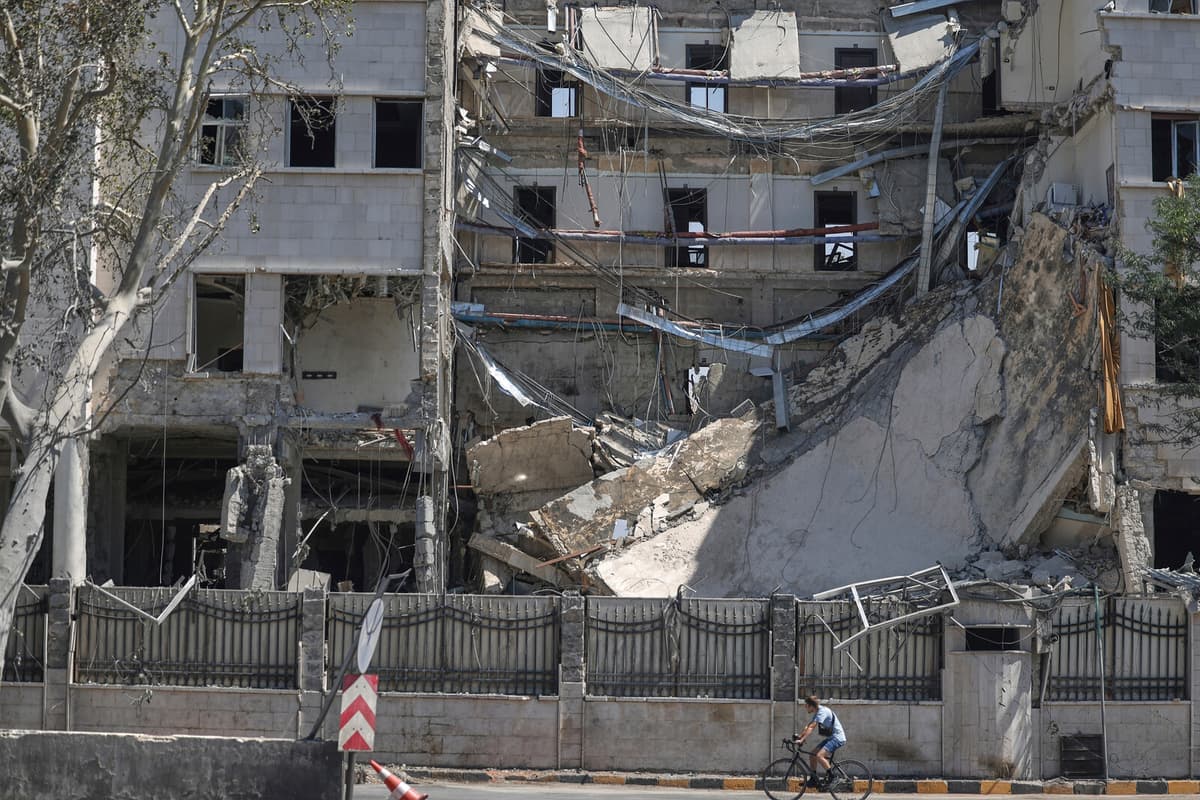The Israeli attacks have, according to the state-run Syrian news agency Sana, been directed at the outskirts of the city of Sweida, which has been plagued by unrest in recent days.
Late on Wednesday evening Swedish time, the Syrian Ministry of Defense announced that they had withdrawn from the area. According to the US, an agreement to "restore calm" in the area had then been established between the parties. However, a Druze leader, Hikmat al-Hijri, has distanced himself from the agreement.
In a televised speech, Syria's interim president Ahmed al-Sharaa thanked American, Arab, and Turkish mediators for "saving the region from an unknown fate". According to al-Sharaa, local groups will now be responsible for security in Sweida, reports the state-run news agency Sana.
516 people have been killed in clashes in the area since Sunday, according to the UK-based Syrian Human Rights Observatory (SOHR). Of these, 154 are civilians, according to the reports.
Sweida is now only a remnant of the city it once was, with looted shops, burned-down homes, and dead bodies on the streets.
Of what I saw of the city today, it looked like it had just been through a flood or a natural disaster, says a doctor on site to the news agency AFP.
Criticizes Israel
Ahmed al-Sharaa strongly criticizes Israel after Wednesday's Israeli attacks on Syrian cities and accuses Israel of destabilizing the country and seeking "chaos and destruction". According to al-Sharaa, Israel targeted both civilian infrastructure and government buildings.
However, Israel's Prime Minister Benjamin Netanyahu is pleased with the bombings and claims that the agreement on de-escalation was achieved in this way.
"It is a ceasefire that has been achieved through violence. Not by making demands, not by appealing, but with violence", says Netanyahu in a statement.
Syrian government forces have been accused of killing Druze civilians during the clashes in Sweida.
We are eager to hold those who have committed violations and abuses against our Druze people accountable, said al-Sharaa in the televised speech according to AFP.
Israeli attacks
It was at the end of last week that clashes broke out between Druze and Bedouins in the province and the city of Sweida, which led to Syrian government forces being deployed in an attempt to quell the violence.
This in turn led to Israel carrying out air strikes on Wednesday against, among other things, Syria's Ministry of Defense in Damascus. Israel presents its attacks as a defense of the Druze minority - which also exists in Israel - but also sees the presence of Syrian government forces in southwestern Syria as a threat to Israel.






